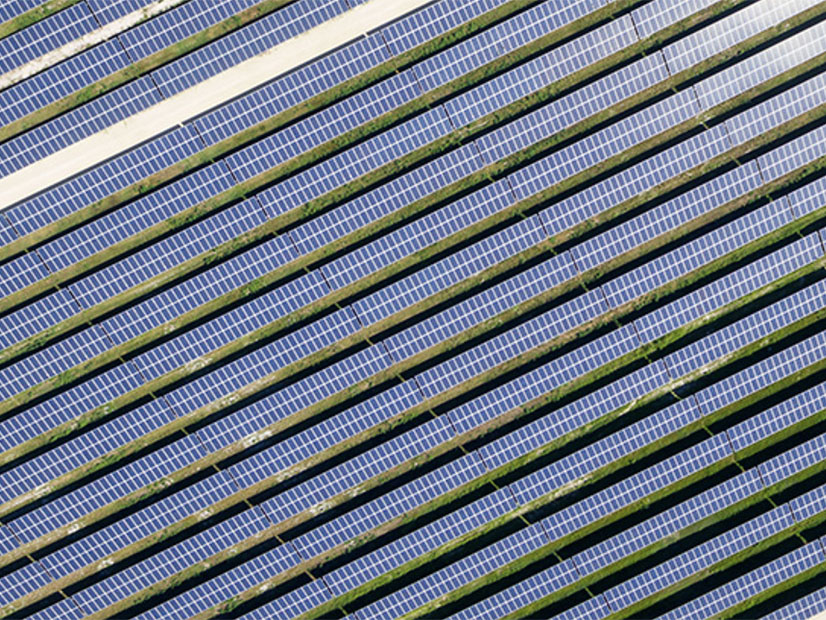New Jersey legislators have advanced legislation to create an Office of Clean Energy Equity and to fund a $20 million a year financing program for state and local government energy efficiency programs.
The Senate Environment and Energy Committee voted 5-0 on Thursday in favor of a bill that would create an office to “promote, guide and oversee the equitable deployment of clean energy, energy efficiency and energy storage programs and technologies” (S336). The program would focus on giving greater access to “overburdened communities,” those that have low-income, minority or tribal residents, or have a large population with limited English proficiency.
The legislation requires the office, located in the New Jersey Board of Public Utilities, to create solar and community solar programs that by 2030 benefit 250,000 low-income householders or 35% of the low-income households in the state, whichever is larger.
The bill also would require the board to create 1,600 MW hours of energy storage in overburdened communities and take steps to ensure that clean energy and the process by which it is developed should be accessible to overburdened communities. The legislation requires creation of clean energy workforce development programs for those communities, outreach and recruitment grants to local organizations, and establishing an advisory board that includes representatives of overburdened communities. The office would be funded with 10% of the state’s annual clean energy budget, or at least $50 million.
The bill, which would need the backing of the full Senate and Assembly to get to the governor’s desk, drew the support of a variety of environmental groups, along with the New Jersey State Chamber of Commerce, the Solar Energy Industries Association and the New Jersey State NAACP.
Anjuli Ramos-Busot, director of the New Jersey chapter of the Sierra Club, called it “critical for New Jersey to include equity as part of its clean energy work.”
“This is imperative so that everyone in our state can fairly access the benefits of renewable energy like solar and wind,” she said. The act, she added, “will help reduce greenhouse gases and co-pollution while saving people money and creating green jobs in communities that are disproportionately affected.”
Funding Energy Efficiency
The committee also backed a bill that would enable the New Jersey Infrastructure Bank to provide loans and financial assistance that state and local governments can use to finance “cost-effective” energy efficiency improvements in government buildings (S419).
The BPU would fund the program, to be known as the Renewable and Efficient Energy Financing program, with an annual allocation of $20 million from the state’s societal benefits charge.
Committee Chairman Bob Smith (D) encouraged his colleagues to see the investment potential of the bill.
“The more renewable [projects] and efficient energy financing that we do, the better off the state’s going to be,” he said. “This is not a freebie; it’s a loan. So, the money comes back to the state.”
In a separate action, Smith re-introduced a bill Thursday that would codify into law parts of Gov. Phil Murphy’s 2019 Energy Masterplan (S1336). They include the goal of putting 330,000 light-duty vehicles on New Jersey streets by 2025; producing at least 35% of the state’s electricity through renewables means by 2025; and ensuring sufficient storage to provide 2 GW of electric power for at least 24 hours by 2035.
Smith introduced the bill in the last legislative session, but although it secured approval of the Senate and the Assembly Environment and Solid Waste Committee and Science, Innovation and Technology Committee, it did not get a full Assembly vote before the session ended in January. The bill was seen as a way to ensure that the state would continue pursuing a clean energy strategy even under future administrations that may be less enthusiastic about the policies in the masterplan. (See Lawmakers Back Putting NJ’s Clean Energy Plan into Law.)
Leaders Urge Haste
Before the advance of the two bills Thursday, BPU President Joseph L. Fiordaliso, in testimony unrelated to the bills, told lawmakers that the threat of climate change is so serious that the cost of fighting it must be accepted. Fiordaliso spoke at a section of the committee hearing set aside for state officials to outline their view of the threat of climate change and what should be done to mitigate it.
“Is clean energy expensive?” he asked. “Yes. But how expensive would it be if we did absolutely nothing?” He added that the benefits of the clean energy “revolution” should be spread across all communities.
“Regardless of location, it is extremely important that all of us have the opportunity to participate,” he said. “Because to mitigate the effects of climate change requires the efforts of each and every one of us.”
Department of Environmental Protection (DEP) Commissioner Shawn LaTourette echoed Fiordaliso’s call for urgency.
“We should be doing [clean energy and mitigation programs] and we should be doing them faster,” he said. “Because depending on how fast we do those things, it will determine just how bad it is after 2050.”
In a separate initiative, the Senate Economic Growth Committee on Thursday backed a bill that would require the New Jersey Economic Development Authority to develop a Request for Proposals (RFP) on plans for creating microgrids to support fleets of medium- and heavy-duty electric vehicles (S787). Microgrids could allow the vehicles to continue operating even if the main grid is disabled because of extreme weather events or other disasters.
The RFP, to be developed in consultation with DEP and the BPU, would seek proposals for at least one microgrid in each of the regions served by the state’s five electric utilities Each micro-grid should be designed to support “very high coincident peak vehicle electric load,” the legislation states.



